Daguerreotype of the inauguration
You could easily mistake it for Lincoln’s (which is maybe the point).
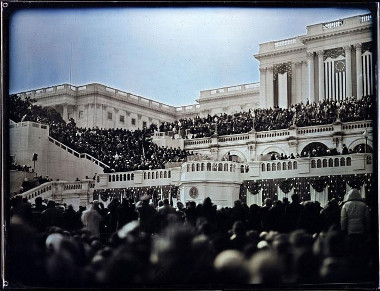
About cameras and taking photos
You could easily mistake it for Lincoln’s (which is maybe the point).

As the holidays were approaching, I dusted off the photo book generator I’d written last year and set out to create another photographic travelogue for our families in the US and France.
This time things were a little easier because I knew what I was doing. But I still had to filter through all the photos I’d taken in 2008, which numbered over 5,200. I pulled around 200 photos, emphasizing the trips we’d taken, and the shots with people. Eventually I culled them down to 105 images spread across 82 pages (7 pages longer than in 2007).
Since I wasn’t focused on the details of designing the book or writing the program to generate it, I was able to spend more time individually cropping and tweaking each photo. I also focused a lot on how each spread (the combination of every left and the right facing page) worked as a whole.

Once I’d stitched together a loose visual narrative, Stephanie and I set to writing the captions—in two languages. This was much easier said than done, and probably took the most time. In the end we’d written over 1,800 words.
Another challenge was coming up with a new cover. My creative juices were sapped after building the book, and I didn’t have any ideas that I thought could top the polaroid effect from 2007. Stephanie worried that if we did the polaroid thing two times in a row—we’d have to stick with it forever. We toyed with the idea of using a single image for the cover, but as soon as we added the year, it screamed calendar. So she started playing around with some other designs and eventually we came up with this multi-panoramic look. From top to bottom that’s Death Valley, Grand Canyon, Lassen, Joshua Tree, and Cinque Terre.
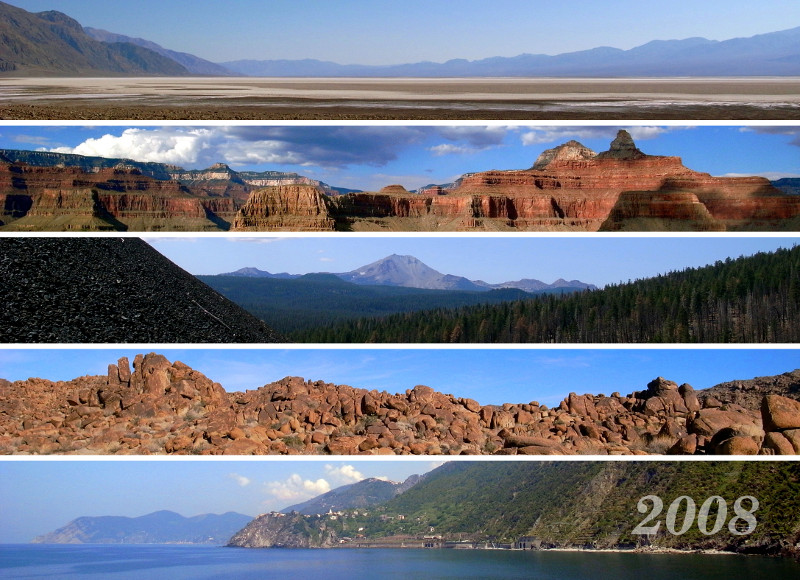
The week before Christmas we submitted the final 115 megabyte PDF off to Viovio and crossed our fingers hoping everything would come out ok (and on time). They all came out beautifully. Here’s a peek inside:
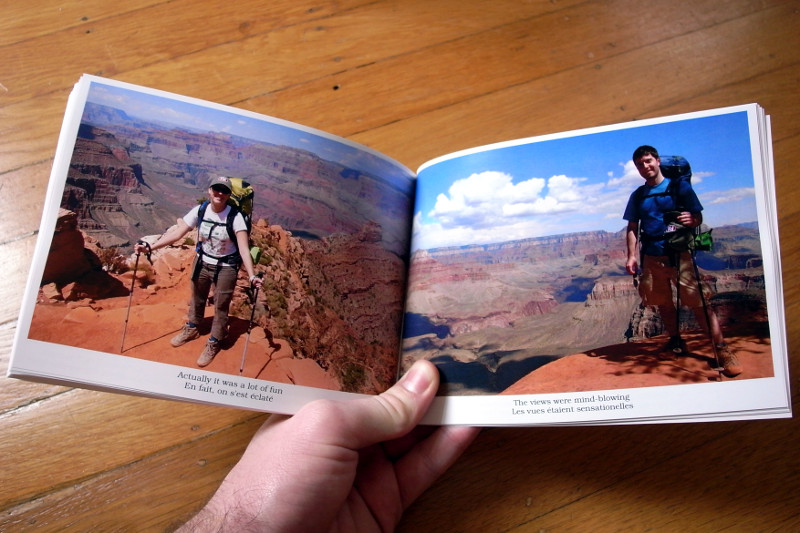
One thing that really struck me this year is how much fun it is looking back through last year’s photo book. I realized that the value of the book is not in the here and now, but later, after a few years have passed. All the time and energy we put into it over a few days in early December don’t just pay off at Christmas, but next year, and the year after that, and so on. At first we were motivated to start making these primarily as a way to connect with our grandparents, but now I can’t wait to show them to my grandchildren!
Update: my photo-book code is available on GitHub.
The other day my friend asked me to suggest some models she might want to consider for her next camera purchase. She has a run of the mill point-and-shoot, and was looking to upgrade to something that might befit her growing trade in freelance blogging. Like maybe a digital SLR. This is a revised version of the email I sent her.
As far as an all-around good point-and-shoot, I’d recommend the Canon SD880 IS. Canon model numbers are notoriously confusing, so if you poke around online, you may find models with higher numbers that are actually be cheaper than the SD880. Don’t be swayed! The SD880 is important for two reasons. The lens is wider than other Canon models, meaning that when you’re not zoomed in, you get a wider angle of view. That and it forgos the useless viewfinder for a larger screen on the back. It also has image stabilization (corrects for shaky hands) but that’s becoming de rigeur on cameras like this these days.
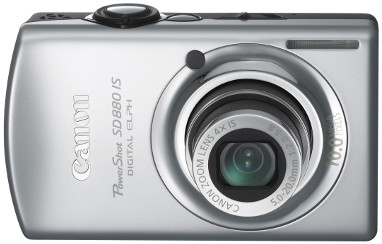
If you feel like breaking into the digital SLR world, most people would say you basically have a choice between Canon and Nikon. In Canon’s case I would recommend the Digital Rebel XS. The comparable Nikon is their D60. There are a variety of different (and more expensive) prosumer SLR models from them both, but these are really good places to start, and it’d be more important to spend money on a better lens in the future than a more expensive body now. Both are going to run just under $450 and come bundled with a “kit” zoom lens. I’ve heard that Nikon’s kit lens tends to perform a little better than Canon’s. However Canon’s lens catalog is very extensive. Either will suit you just fine.
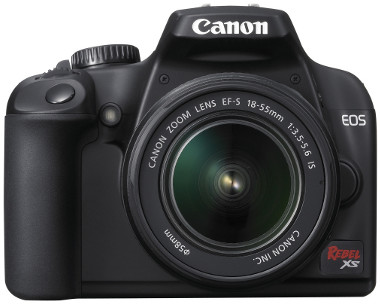
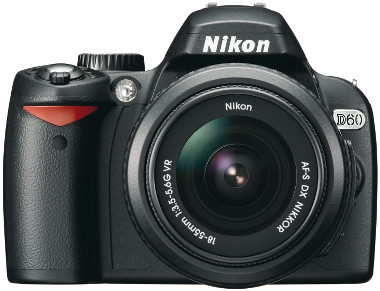
If I were buying a digital SLR today, I’d be leaning towards the Pentax K200D, specifically because Pentax offer a number of neat, non-zoom “pancake” lenses, which are both flatter and lighter than a normal zoom lens. In particular I’ve heard great things about their 35mm macro lens (ok, this one’s not exactly a pancake), which is great for both macro photography, as well as normal perspective day to day photos. A K200D body costs about $440 and the lens costs about $450. Plus it’s not a Canon or a Nikon, which everybody else is going to have. I dunno, that speaks to me.
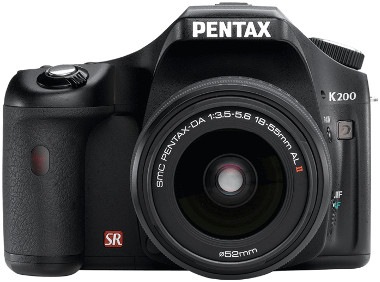
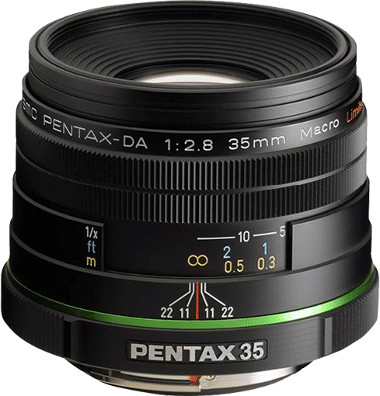
Pamela mentioned the Pentax K2000 in the comments, which is an updated and somewhat simplified version of the K200D. I didn’t recommend it because it’s only available with the kit lens, and I wanted to stress the K200D’s body-only configuration coupled with the 35mm macro lens. Well I just learned that Pentax is coming out with a limited-edition White K2000 kit with two zoom lenses that have also been given the white treatment, and I had to add it to the list. I gotta say, “Ballsy move Pentax, ballsy.”
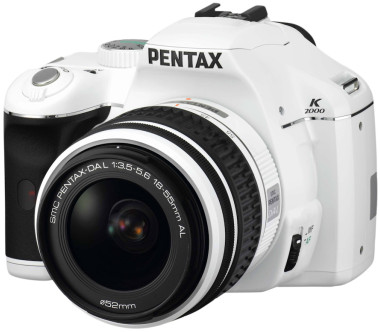
There are of course other cameras to consider. If you want all the features of an SLR, but you don’t want to fiddle with removable lenses or their bulky weight/size, consider the Canon PowerShot G10. If you want an even smaller full-featured camera that will impress your photog friends, consider the Ricoh GX200. If you want the best SLR in the smallest package that money can buy, then think about the Canon 5D Mark II.
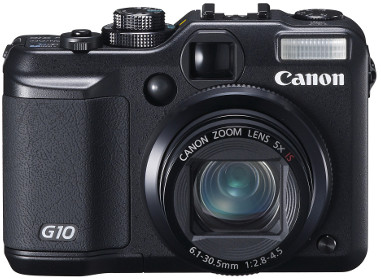
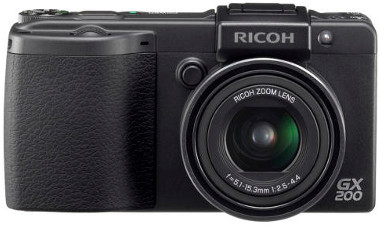
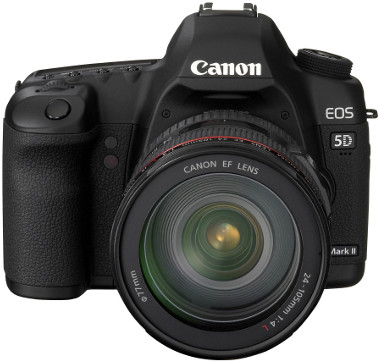
What an incredible piece of photojournalism by Shiho Fukada:
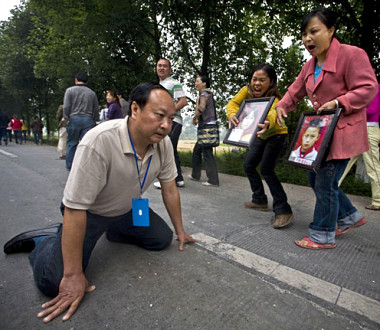
This photo appeared on the front page of Wednesday’s New York Times (May 28, 2008) alongside the article Parents’ Grief Turns to Rage at Chinese Officials by Andrew Jacobs. The equally enraging caption for the photo read:
Jiang Guohua, the Communist Party boss of Mianzhu, knelt Sunday to ask parents of earthquake victims to abandon their protest.
I have a lazyweb question for the internets. Does anyone know anything about this photo? Like who took it? Where? When? Who’s riding the #90 scooter up a dirt road on the side of a mountain? Is he racing? What type of scooter is that? What does the writing on the photo say? What language is that?

I have more questions than answers, in fact the only answer I have is where I was when took this shot with my cameraphone. Though I could call the place to see if they have any information, I thought first it’d be more fun to draw on the web’s collective knowledge.
My rudimentary searches turned up blanks, so I bow before anyone who knows the proper incantation to elicit an answer from Google. Of course if you already know something about this photo, that helps too, but if not, I’d definitely be interested in knowing how you found it as much as what you found.